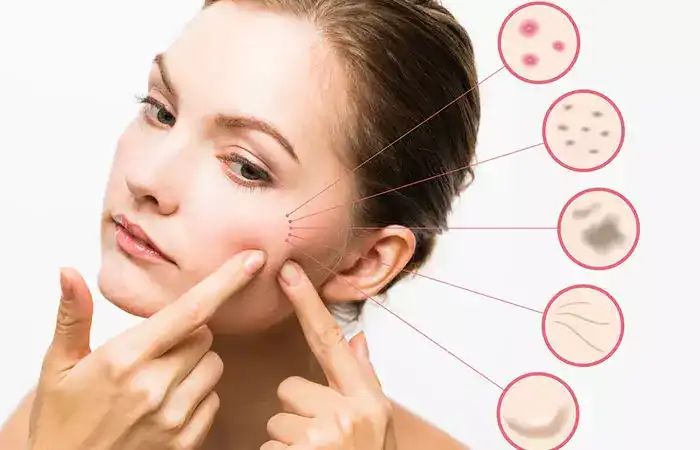The Power of Beta Carotene: Nature’s Gift for Healthy Skin, Vision, and Immunity
When it comes to antioxidants, few are as widely known and respected as beta carotene. It’s the vibrant, orange pigment found in many fruits and vegetables, and it plays a significant role in supporting overall health. From improving vision to boosting immunity and even protecting your skin from harmful UV rays, beta carotene offers a wide range of benefits that make it an essential nutrient in any balanced diet. But what exactly is beta carotene, and why should you care about it?
What Is Beta Carotene?
Beta carotene is a type of carotenoid, a family of naturally occurring pigments found in plants. Carotenoids are responsible for the bright red, yellow, and orange colors of many fruits and vegetables. Beta carotene is perhaps the most well-known and studied carotenoid because it is a powerful antioxidant and, more importantly, the precursor to vitamin A, a nutrient that is vital for many bodily functions.
The body converts beta carotene into vitamin A, which is essential for various health functions, including maintaining healthy vision, supporting immune function, and ensuring the integrity of skin cells. But beta carotene is more than just a vitamin A source. As an antioxidant, it also helps to neutralize harmful free radicals in the body, potentially reducing the risk of chronic diseases.
Natural Beta Carotene Making Food Brighter
Beta-Carotene is a common food additive used as a food color in various applications. The concentration, proportion, and chemical structure of carotenoids influence their application. The application of beta carotene food coloring ranges from bakery, and confectionery, to beverage, dairy, and more. They offer excellent light, heat, and pH stability.
Its intrinsic antioxidant properties and plant bioactive compounds make beta carotene healthy for the body. It is known to benefit different functions of the body as well as reduce the risk of lung cancer.
Natural beta carotene is a vibrant, plant-based pigment that brings bright, appealing colors to food, enhancing its visual appeal while also adding nutritional value. Found abundantly in carrots, sweet potatoes, and leafy greens, beta carotene produces a bright orange or yellow hue, making it an ideal natural colorant for foods.
When added to items like dairy products, baked goods, and beverages, it enhances their appearance without the need for artificial dyes. Beyond aesthetics, beta carotene is a powerful antioxidant and a precursor to vitamin A, supporting eye health and immune function. Its dual role as both a natural coloring agent and a beneficial nutrient makes beta carotene a preferred choice for food manufacturers and consumers alike, catering to the demand for health-conscious, vibrant, and naturally derived food ingredients.

Top Benefits of Beta Carotene
1. Supports Eye Health and Vision: Beta carotene’s most notable benefit is its role in maintaining good vision. Vitamin A, derived from beta carotene, is crucial for the health of the retina, the part of the eye responsible for vision. It helps prevent conditions like night blindness and may protect against age-related macular degeneration (AMD), a leading cause of blindness in older adults.
By consuming enough beta carotene, you help ensure your eyes have the nutrients they need to stay sharp and healthy as you age.
2. Boosts the Immune System: Vitamin A, supported by beta carotene, plays a vital role in maintaining a healthy immune system. It helps in the production and function of white blood cells, which are essential in fighting off infections and diseases. A well-functioning immune system is the body’s first line of defense against harmful pathogens, making beta carotene a key player in overall health and longevity.
3. Protects Your Skin from the Inside Out: Beta carotene can also contribute to healthy, radiant skin. As an antioxidant, it helps protect your skin cells from oxidative stress caused by environmental factors like pollution and UV radiation. In fact, some studies suggest that regular consumption of beta carotene may help reduce the risk of sunburn and skin damage from prolonged sun exposure.
Not only does beta carotene help defend your skin against harmful UV rays, but it may also promote skin healing and repair by stimulating the production of new, healthy skin cells.
4. Fights Free Radicals and Prevents Chronic Diseases: Free radicals are unstable molecules that can damage cells and tissues in the body, contributing to the development of chronic conditions such as heart disease, cancer, and diabetes. Beta carotene’s antioxidant properties help neutralize these free radicals, protecting the body from cellular damage and potentially reducing the risk of long-term health problems.
By regularly consuming beta carotene-rich foods, you are actively working to protect your body’s cells and reduce oxidative stress, ultimately promoting better health over time.
5. Promotes Healthy Brain Function: Emerging research has also linked beta carotene to cognitive health. Studies suggest that beta carotene’s antioxidant properties may help reduce cognitive decline associated with aging, including conditions like Alzheimer's disease. By reducing oxidative stress and inflammation in the brain, beta carotene may support memory and overall brain function.

Beta Carotene & Your Vision: Does It Actually Help?
Beta carotene has proven to be a non-toxic answer to improving vision. It can help to prevent night blindness, and it is also a proven preventive for age-related macular degeneration (AMD) and dry eye syndrome. In addition to protecting the cornea, beta carotene builds up a barrier for the mucous membranes. This helps to prevent eye infections and issues with dryness.
Non provitamin A carotenoids cannot be converted into vitamin A, but they help the body in other ways:
Lutein: Lutein is a carotenoid with reported anti-inflammatory properties. Studies show that it has benefits for the body, especially regarding eye health. It’s known to improve or even prevent age-related eye disease, which is a leading cause of blindness and vision impairment.⁴
Zeaxanthin: This carotenoid accumulated in your eye.⁵ It has potent antioxidant properties and is linked to several health benefits, including reducing the risk of age-related macular degeneration, glaucoma, and cataracts, though additional studies are needed.⁶
Lycopene: Lycopene is a carotenoid with antioxidant properties that gives red and pink fruits, like pink grapefruit and watermelon, their gorgeous colors. It’s been linked to health benefits that include sun protection⁷ (but not enough for you to skip your daily SPF).
Beta carotene, which is largely known as a nutrient in carrots, has even gained recognition in the annals of history. During World War II, the UK Ministry of Food propagandized the eating of carrots, something that it declared helped during blackouts. Before that time, carrots were not popularly consumed.
Researchers believe beta carotin primarily shows its value in three primary ways. It slows down problems with night blindness, reduces age-related macular degeneration (AMD), and prevents the eyes from getting too dry.
How to Get Beta Carotene in Your Diet
The good news is that getting enough beta carotene is easy, as it is found in a variety of delicious and colorful foods. The following are some of the best dietary sources of beta carotene:
1. Carrots – The classic source of beta carotene, carrots are not only rich in the antioxidant but also versatile for many dishes.
2. Sweet Potatoes – These nutrient-dense root vegetables provide an excellent dose of beta carotene and are great for roasting, mashing, or adding to stews.
3. Spinach and Kale – Leafy greens are packed with beta carotene, as well as a host of other essential vitamins and minerals.
4. Butternut Squash – This winter squash offers a hefty dose of beta carotene and is delicious in soups, casseroles, and roasted dishes.
5. Mangoes – Not only rich in beta carotene, but also a great source of vitamin C for added immune support.
6. Red Bell Peppers – These are high in beta carotene and provide additional antioxidants to support overall health.
7. Pumpkin – Another fall favorite, pumpkins are packed with beta carotene and can be used in both savory and sweet recipes.

Beta-Carotene for Skin: A Powerful Antioxidant
Beta-carotene is a natural substance that has received a lot of attention in recent years for its beauty advantages. Research on the effects of topical application of beta-carotene is still limited, but here’s what experts know so far: Beta-carotene is most likely fine to use on all skin types, but the jury’s still out regarding whether it’s better to apply it in the morning or at night—or both. Using it in the morning may help protect your skin from UV damage, while using it at night may help rejuvenate and refresh your skin.
When beta-carotene is taken in the diet, it is transformed into vitamin A, a necessary ingredient for keeping healthy skin, among other things. Beta-carotene can do wonders when added to skincare products. Its antioxidant capabilities shield the skin from environmental aggressors, including pollution and UV radiation, aiding in the prevention of premature aging and the maintenance of a youthful complexion. Furthermore, the effect of beta-carotene on increasing skin cell turnover helps to create a smoother and more even skin tone.
Furthermore, some research suggests that when combined with other antioxidants like vitamins C and E, beta-carotene can improve the skin's ability to protect itself from harmful UV rays. While sunscreen is still the best way to protect yourself from sun damage, incorporating beta-carotene into your skincare routine may provide additional protection.

A Word on Supplementation
While it’s always best to get nutrients from whole foods, some individuals may find it difficult to meet their daily needs through diet alone. In such cases, beta carotene supplements can be an option. However, it’s important to note that high-dose beta carotene supplementation (especially for smokers) has been linked to an increased risk of lung cancer, so it is essential to consult a healthcare provider before taking any supplements.
Where to Buy Beta Carotene Powder?
Discover the exceptional quality of Beta carotene powder from YANGGE BIOTECH INGREDIENTS, available with a complimentary sample at yanggebiotech.com. Renowned as an industry leader, YANGGE BIOTECH is dedicated to manufacturing and distributing premium-grade dietary supplement ingredients, delivering purity and potency with every product. Not only does YANGGE BIOTECH serve health-conscious consumers directly, but it also partners with top brands across the food and supplement sectors, supplying raw, pure ingredients that meet the highest industry standards. Elevate your product offerings or personal wellness with our trusted ingredients—reach out to us today to place your order and experience the YANGGE difference.
Wrapping up, Beta carotene is a powerhouse nutrient with a broad range of health benefits. From supporting your vision and immune system to protecting your skin and preventing chronic diseases, it’s clear that this antioxidant is essential for optimal health. By incorporating beta carotene-rich foods into your diet, you can enjoy a wide array of protective benefits while also promoting overall wellness.
So, why wait? Start enjoying the colorful, nutrient-packed fruits and vegetables that are rich in beta carotene today, and experience the difference it can make in your health and vitality.
Why Choose YanngeBiotech for Beta Carotene?
YanngeBiotech is your trusted source for high-quality, pure beta carotene, offering a range of benefits for various industries. Here’s why we stand out:
1. Premium Quality: We source beta carotene from the finest natural plant sources, ensuring purity and potency in every batch.
2. Rigorous Quality Control: Our products undergo strict testing for contaminants, heavy metals, and potency, meeting the highest standards.
4. Sustainability: We prioritize environmentally responsible sourcing and manufacturing, minimizing our ecological footprint.
5. Competitive Pricing: Enjoy top-tier quality at cost-effective prices with flexible ordering options to suit your needs.
6. Fast, Reliable Shipping: Our global logistics network ensures timely, safe delivery for orders of any size.
Expert Customer Support: Our team is ready to provide personalized assistance, from product inquiries to technical advice.
Choose Yannge Biotech for beta carotene that’s not only effective but also sustainable, reliable, and competitively priced. Trust us to meet all your nutritional and industrial needs.
References:
Anand R, Mohan L, Bharadvaja N. Disease prevention and treatment using β-carotene: The ultimate provitamin A. Rev Bras Farmacogn. 2022;32(4):491-501. doi:10.1007/s43450-022-00262-w
Gul K, Tak A, Singh AK, et al. Chemistry, encapsulation, and health benefits of β-carotene - A review. Cogent Food & Agriculture. 2015;1(1):1018696. doi:10.1080/23311932.2015.1018696
Ebadi M, Mohammadi M, Pezeshki A, Jafari SM. Health benefits of beta-carotene. In: Handbook of Food Bioactive Ingredients. Springer, Cham; 2023.
Li SS, Wang HH, Zhang D. Efficacy of different nutrients in age-related macular degeneration: A systematic review and network meta-analysis. Semin Ophthalmol. 2022;37(4):515-523. doi:10.1080/08820538.2021.2022165
Black HS, Boehm F, Edge R, Truscott TG. The benefits and risks of certain dietary carotenoids that exhibit both anti- and pro-oxidative mechanisms - A comprehensive review. Antioxidants (Basel). 2020;9(3):264. doi:10.3390/antiox9030264
MedlinePlus. Beta-carotene.
National Institutes of Health: Office of Dietary Supplements. Vitamin A and carotenoids: Fact sheet for health professionals.
U.S. Food and Drug Administration. Select Committee on GRAS Substances (SCOGS) Opinion: Carotene (beta-carotene).
National Institutes of Health: Office of Dietary Supplements. Vitamin A and carotenoids: Fact sheet for consumers.
National Institutes of Health Office of Dietary Supplements. Botanical dietary supplements background information.
U.S. Food & Drug Administration. Facts about dietary supplements.
Send Inquiry
Related Industry Knowledge
- Exploring the Wonders of Rice Oligopeptide: A Superfood for Health and Wellness
- The main trend of pet nutrition products-natural and clean
- Epimedium Soap
- Beauty Benefits of Marine Collagen Powder
- Organic Turmeric with Black Pepper Health Benefits
- Resveratrol Powder: Pure, Organic, and Extract
- Sunflower Lecithin Powder and Liquid Benefits
- Seamoss Gummies: Benefits for All Ages
- Does oat beta-glucan reduce cholesterol?
- Does CLA (conjugated linoleic acid) work for belly fat?



